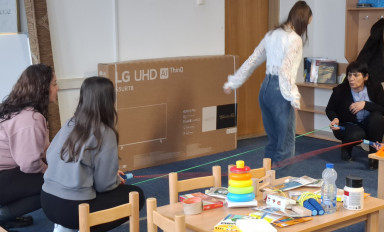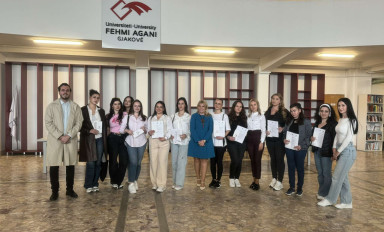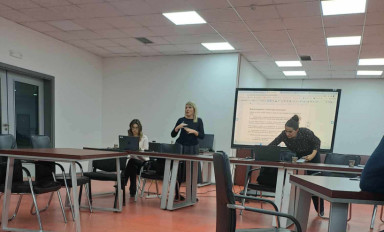Teaching Children's Literature
The Master's program in Teaching Children's Literature is of great importance for several reasons, particularly in improving teachers' skills and enhancing the educational experiences of young learners. This program deepens teachers' understanding of the history, evolution, and diversity of children's literature. It includes knowledge of various genres, authors, themes, and cultural representations. Teachers gain the ability to evaluate and select quality literature for children, understanding its age appropriateness, educational value, and potential for engagement. The program helps educators apply strategies to cultivate a love for reading in children, which is fundamental for lifelong learning. Educators learn how to integrate children's literature into various aspects of the curriculum. This can improve subjects such as language arts, history, and social studies, offering interdisciplinary opportunities. The program equips educators with methodologies to adapt literature and related activities to meet the diverse needs of students, considering learning styles, reading levels, and interests.
The objectives of the study program in Teaching Children’s Literature are focused on preparing educators to engage effectively with children through literature, helping them develop critical thinking, reading skills, and a love for reading. Other objectives include creating an interactive and inclusive learning experience that promotes reading and literary appreciation among students, strengthening teachers’ abilities to teach reading, writing, and comprehension skills through the use of children’s literature, as well as examining how literature supports vocabulary development, critical thinking, and cognitive skills in young learners.
Graduates of the Master's program in Teaching Children's Literature can pursue a wide range of career opportunities, both within educational settings and beyond. Their expertise in literature, pedagogy, and literacy development makes them well-suited for roles involving teaching, curriculum development, research, and advocacy. Furthermore, graduates can work as educators, particularly in elementary or middle schools, where they teach literature, reading, writing, and other related subjects. Graduates can also work in educational publishing houses or as part of curriculum development teams within school districts, creating reading programs and materials that integrate children's literature in a way that enhances learning across various subjects.
The learning outcomes for the study program under assessment are:
Develop skills to analyze and evaluate children's literary texts. They will learn to identify narrative structures, characters, themes, and the different messages contained in these texts;
Become proficient in using literature effectively in educational settings, employing methods and strategies to engage children and promote reading and critical thinking;
Acquire competencies in the best teaching and learning theories and practices, interactive methodologies, and those that stimulate critical and creative thinking;
Demonstrate teaching and assessment approaches that respond to the complexities of teaching and learning;
Learn to use literature to address social and cultural issues related to children's development, such as discrimination, social integration, and support for children in sensitive situations;
Experiment with new technologies and digital media to develop and implement literary materials and activities that engage children and support learning;
Evaluate and critique children's literature in terms of representation and diversity, and develop the skills to identify and address gaps in available materials;
Gain knowledge of children's writing and illustration processes, learning how to create stories and content that are suitable and engaging for a young audience’
Develop creative writing skills to express imagination, thoughts, emotions, and storytelling.
Objectives of the Program Teaching Children's Literature (MA)
Analyze main and supporting characters, understanding their motives and development throughout the narrative;
Develop skills to implement interactive methods that encourage children to actively engage with literary texts, such as group discussions, role-playing, and creative activities;
Gain knowledge of various teaching theories, understanding how they influence the learning process;
Apply different teaching approaches that align with the diverse needs of students, considering their knowledge levels and learning styles;
Become skilled in analyzing and evaluating how literature addresses social issues;
Express their creativity and develop skills through the use of digital media;
Help understand how literary criticism can contribute to improving the quality of children's literature;
Develop creative skills by writing original stories suitable for children, taking into account the interests and age of the audience;
Learn how to express their thoughts and emotions through writing, using figurative language and a personal style.

 Library
Library 


.png)
